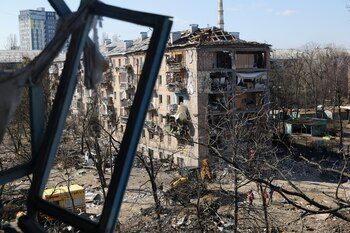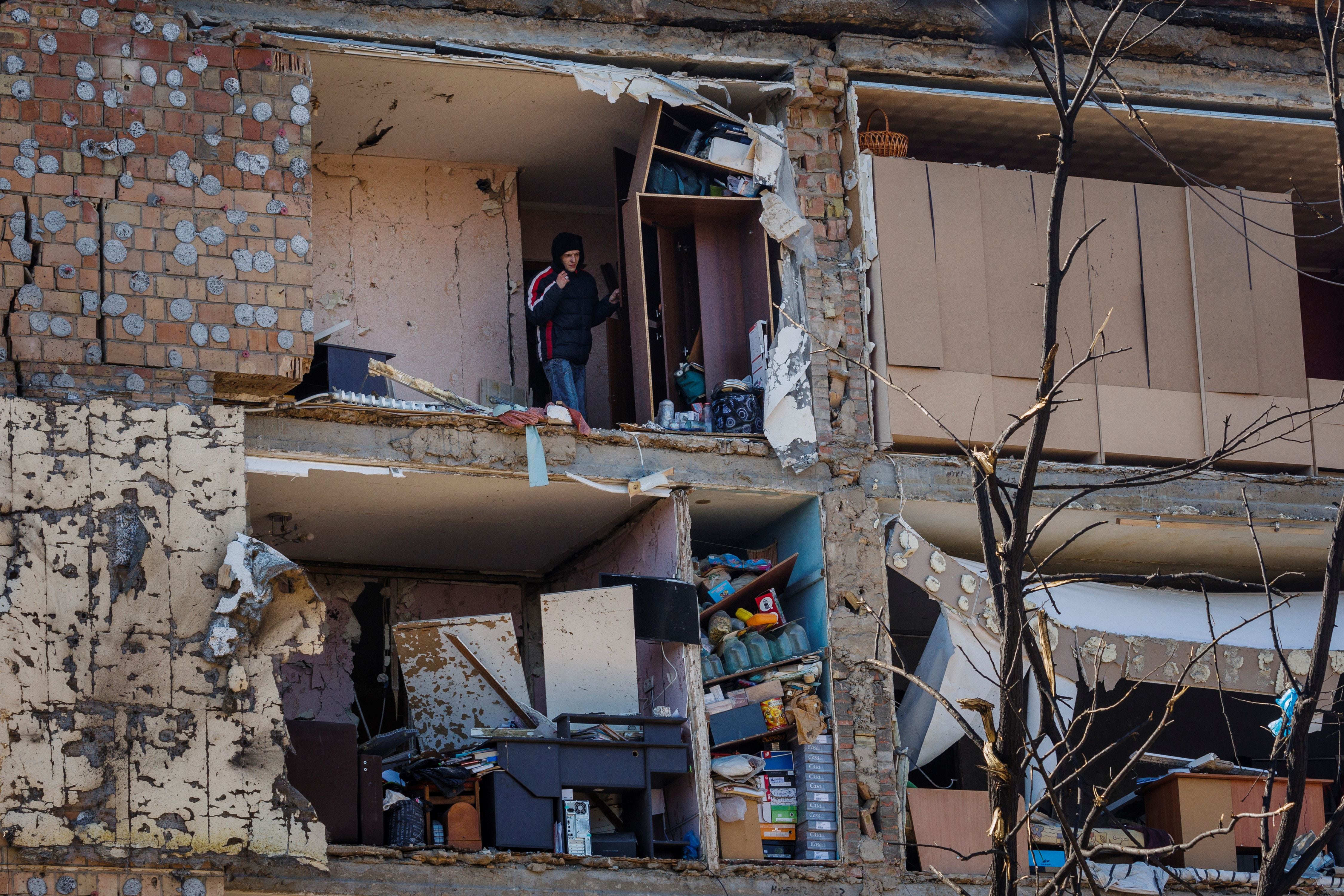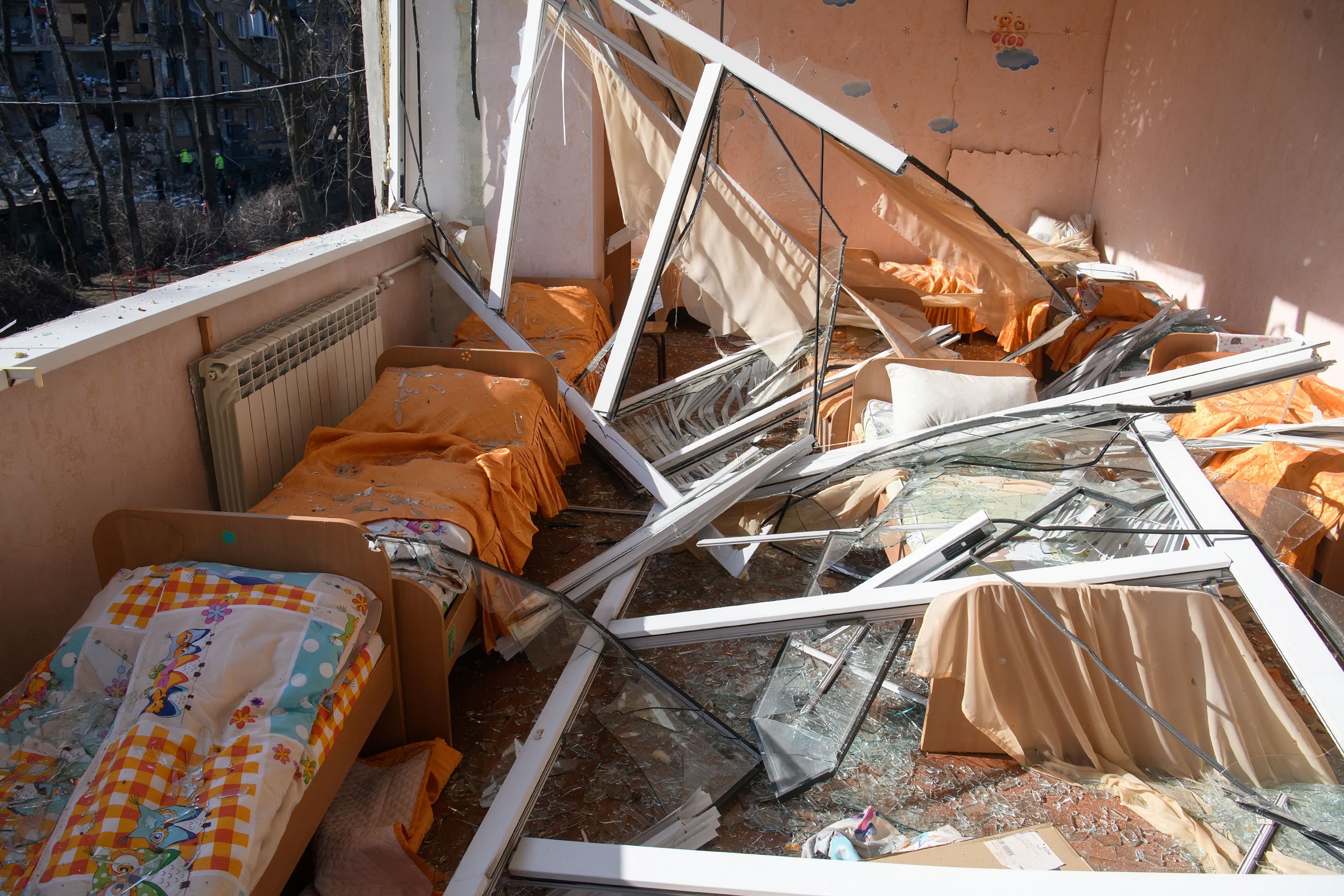
This Friday, Infobae returned to Kiev amid a new Russian bombardment of civilians that caused death and destruction in a neighborhood of the Ukrainian capital, which has no military objective nearby and in which a school and a nursery were destroyed, as well as hundreds of houses.
At least one person died and 19 others were injured, including several minors. The rockets also affected six civilian buildings.
Mayor Vitali Klitschko was on the scene and said: “The enemy continues to attack the capital. In the morning, the orcs bombed a residential area in the Podil district. One person died, 19 were injured, including four children. Six houses, a kindergarten and a school were damaged.”
The Ukrainian authorities said today that the Russians are killing at least five Ukrainians a day, according to the survey released by Attorney General Irina Venediktova.

Venediktov also said that the Russians had already bombed more than 400 schools in these days of war, of which 59 have disappeared and will not be able to be used again.

This happened while Russian President Vladimir Putin froze the ceasefire agreement during a dialogue with German Foreign Minister Olaf Scholz, where he sharply criticized Kiev's positions: “He seeks by all means to delay the negotiation process by putting forward proposals that are not realistic,” he said.
The statements cool the expectations that had accelerated this week, when encouraging signs of progress in the negotiations had come from the Kremlin itself, also paid by Volodymir Zelensky. The Ukrainian president had said that his country would admit the impossibility of joining NATO, although that required a special regime with countries that would guarantee its security and independence from the dictates of Moscow.
KEEP READING:
Últimas Noticias
Debanhi Escobar: they secured the motel where she was found lifeless in a cistern
Members of the Specialized Prosecutor's Office in Nuevo León secured the Nueva Castilla Motel as part of the investigations into the case

The oldest person in the world died at the age of 119
Kane Tanaka lived in Japan. She was born six months earlier than George Orwell, the same year that the Wright brothers first flew, and Marie Curie became the first woman to win a Nobel Prize

Macabre find in CDMX: they left a body bagged and tied in a taxi
The body was left in the back seats of the car. It was covered with black bags and tied with industrial tape
The eagles of America will face Manchester City in a duel of legends. Here are the details
The top Mexican football champion will play a match with Pep Guardiola's squad in the Lone Star Cup

Why is it good to bring dogs out to know the world when they are puppies
A so-called protection against the spread of diseases threatens the integral development of dogs




